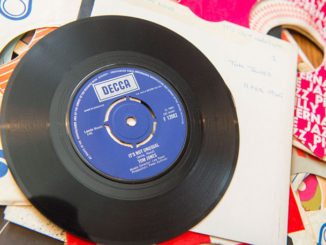
One Saturday in 1994, Bennie Lydell Glover, a temporary employee at the PolyGram compact-disk manufacturing plant in Kings Mountain, North Carolina, went to a party at the house of a co-worker. He was angling for a permanent position, and the party was a chance to network with his managers. Late in the evening, the host put on music to get people dancing. Glover, a fixture at clubs in Charlotte, an hour away, had never heard any of the songs before, even though many of them were by artists whose work he enjoyed.
Later, Glover realized that the host had been d.j.’ing with music that had been smuggled out of the plant. He was surprised. Plant policy required all permanent employees to sign a “No Theft Tolerated” agreement. He knew that the plant managers were concerned about leaking, and he’d heard of employees being arrested for embezzling inventory. But at the party, even in front of the supervisors, it seemed clear that the disks had been getting out. In time, Glover became aware of a far-reaching underground trade in pre-release disks. “We’d run them in the plant in the week, and they’d have them in the flea markets on the weekend,” he said. “It was a real leaky plant.”
The factory sat on a hundred acres of woodland and had more than three hundred thousand square feet of floor space. It ran shifts around the clock, every day of the year. New albums were released in record stores on Tuesdays, but they needed to be pressed, packaged, and shrink-wrapped weeks in advance. On a busy day, the plant produced a quarter of a million CDs. Its lineage was distinguished: PolyGram was a division of the Dutch consumer-electronics giant Philips, the co-inventor of the CD.
One of Glover’s co-workers was Tony Dockery, another temporary hire. The two worked opposite ends of the shrink-wrapping machine, twelve feet apart. Glover was a “dropper”: he fed the packaged disks into the machine. Dockery was a “boxer”: he took the shrink-wrapped jewel cases and stacked them in a cardboard box for shipping. The jobs paid about ten dollars an hour.
Glover and Dockery soon became friends. They lived in the same town, Shelby, and Glover started giving Dockery a ride to work. They liked the same music. They made the same money. Most important, they were both fascinated by computers, an unusual interest for two working-class Carolinians in the early nineties—the average Shelbyite was more likely to own a hunting rifle than a PC. Glover’s father had been a mechanic, and his grandfather, a farmer, had moonlighted as a television repairman. In 1989, when Glover was fifteen, he went to Sears and bought his first computer: a twenty-three-hundred-dollar PC clone with a one-color monitor. His mother co-signed as the guarantor on the layaway plan. Tinkering with the machine, Glover developed an expertise in hardware assembly, and began to earn money fixing the computers of his friends and neighbors.
By the time of the party, he’d begun to experiment with the nascent culture of the Internet, exploring bulletin-board systems and America Online. Soon, Glover also purchased a CD burner, one of the first produced for home consumers. It cost around six hundred dollars. He began to make mixtapes of the music he already owned, and sold them to friends. “There was a lot of people down my way selling shoes, pocketbooks, CDs, movies, and fencing stolen stuff,” he told me. “I didn’t think they’d ever look at me for what I was doing.” But the burner took forty minutes to make a single copy, and business was slow.
Glover began to consider selling leaked CDs from the plant. He knew a couple of employees who were smuggling them out, and a pre-release album from a hot artist, copied to a blank disk, would be valuable. (Indeed, recording executives at the time saw this as a key business risk.) But PolyGram’s offerings just weren’t that good. The company had a dominant position in adult contemporary, but the kind of people who bought knockoff CDs from the trunk of a car didn’t want Bryan Adams and Sheryl Crow. They wanted Jay Z, and the plant didn’t have it.
By 1996, Glover, who went by Dell, had a permanent job at the plant, with higher pay, benefits, and the possibility of more overtime. He began working double shifts, volunteering for every available slot. “We wouldn’t allow him to work more than six consecutive days,” Robert Buchanan, one of his former managers, said. “But he would try.”
The overtime earnings funded new purchases. In the fall of 1996, Hughes Network Systems introduced the country’s first consumer-grade broadband satellite Internet access. Glover and Dockery signed up immediately. The service offered download speeds of up to four hundred kilobits per second, seven times that of even the best dial-up modem.
Glover left AOL behind. He soon found that the real action was in the chat rooms. Internet Relay Chat networks tended to be noncommercial, hosted by universities and private individuals and not answerable to corporate standards of online conduct. You created a username and joined a channel, indicated by a pound sign: #politics, #sex, #computers. Glover and Dockery became chat addicts; sometimes, even after spending the entire day together, they hung out in the same chat channel after work. On IRC, Dockery was St. James, or, sometimes, Jah Jah. And Glover wasADEG, or, less frequently, Darkman. Glover did not have a passport and hardly ever left the South, but IRC gave him the opportunity to interact with strangers from all over the world.
You can read the rest of this article by Stephen Witt from the New Yorker here




Be the first to comment